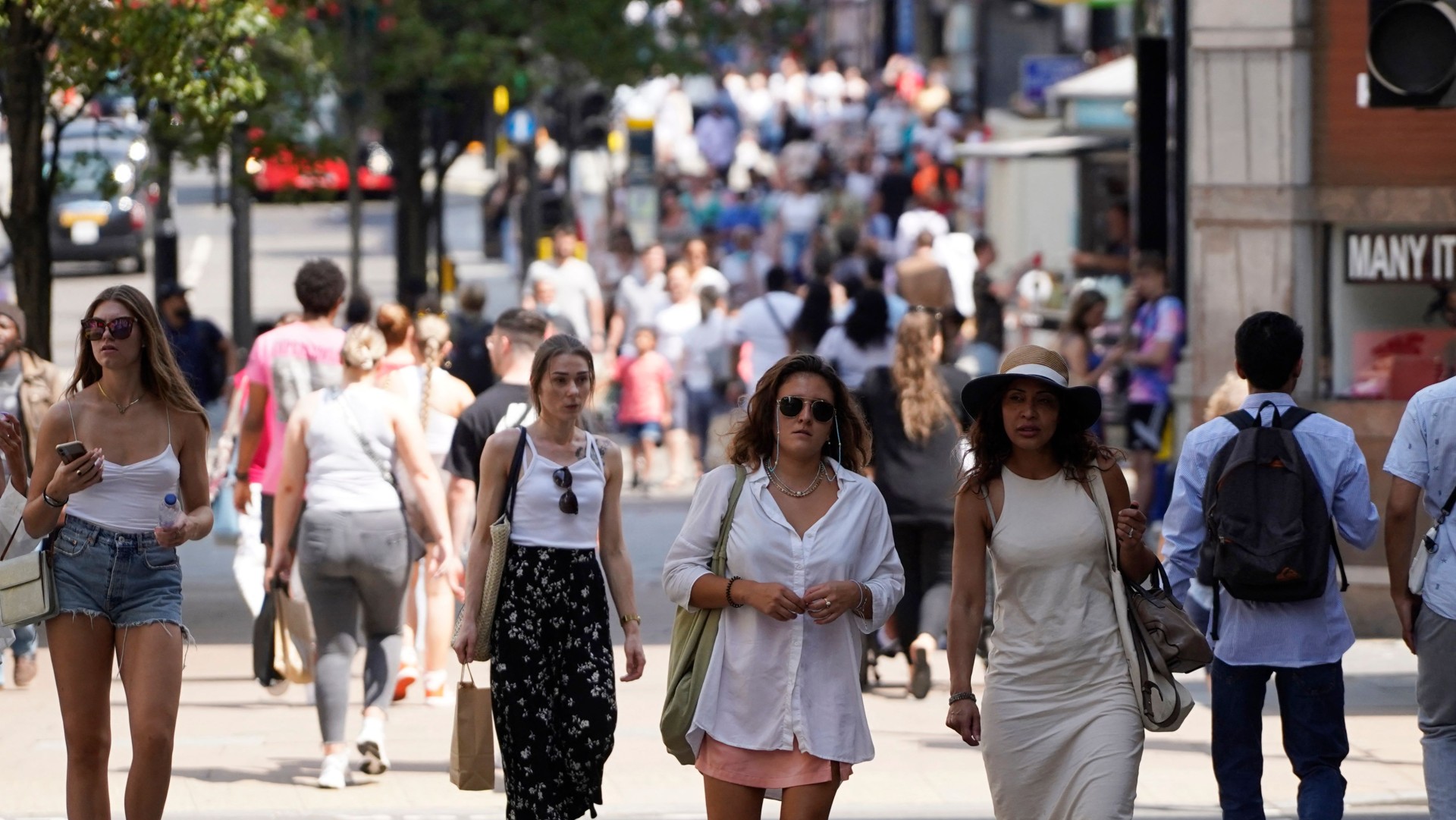Covid cases in shock drop: what’s going on?
Experts analyse mysterious fall in coronavirus cases after peak of third wave predicted next month

A free daily email with the biggest news stories of the day – and the best features from TheWeek.com
You are now subscribed
Your newsletter sign-up was successful
The number of new coronavirus cases has dropped for five days in a row for the first time since February – and the only time during the pandemic when a sustained fall has not coincided with a national lockdown.
The Covid dashboard on gov.uk finally turned from red to green, as the UK recorded 29,173 new cases on Sunday, down from 48,161 logged on 18 July. Week on week, there was a 15% drop in cases.
It comes after Health Secretary Sajid Javid predicted that the country would reach peaks of 100,000 cases a day this summer, with some experts saying this could be an underestimate.
The Week
Escape your echo chamber. Get the facts behind the news, plus analysis from multiple perspectives.

Sign up for The Week's Free Newsletters
From our morning news briefing to a weekly Good News Newsletter, get the best of The Week delivered directly to your inbox.
From our morning news briefing to a weekly Good News Newsletter, get the best of The Week delivered directly to your inbox.
But while “it is great news that cases are falling”, says Tom Whipple in The Times. “It is also slightly mysterious.”
Vaccines have had a “huge effect”, he says, with nearly 84 million people (88% of adults) in the UK receiving at least one vaccine and 37 million (70%) having both doses.
Whipple thinks it is plausible to believe that we have peaked and are “on our way down”. But he says what is confusing is that if we had simply passed the level of herd immunity, you would expect to see a “rounded dome of a Mont Blanc-style summit”, while the “graph of UK cases looks like a spiky Matterhorn”.
The Guardian points out that the figures “do not include the impact of 19 July restriction easing”. Indeed, Paul Hunter, professor of medicine at the University of East Anglia, told the BBC: “It will not be until about next Friday before the data includes the impact of this change.”
A free daily email with the biggest news stories of the day – and the best features from TheWeek.com
The newspaper says experts have, in part, put the fall down to the recent hot weather, “which has meant people have been socialising outside more”.
There has also been a decline in the number of people taking Covid tests over the past two weeks, “which could also be a factor for the dip in figures”, it says.
Others have suggested that the drop in tests and cases might be partly due to the fact that secondary school pupils are no longer doing lateral flow tests twice a week as they were during term-time, says the i newspaper. However, the impact from this is unlikely to be fully realised yet.
The end of the Euros is another aspect to think about, says the paper, after the World Health Organization blamed the football championship for a rise in Covid-19 cases across Europe at the start of the month. “The end of the tournament has seen fewer people meeting up in pubs or at home,” it adds.
In The Spectator, Oliver Johnson agrees with Whipple in The Times that the “rapid reversal in trajectory (from 40% increases between corresponding days of the week to 40% decreases) seems too sudden to be caused by a rapid gain in immunity”.
Johnson, a professor of information theory and the director of the Institute for Statistical Science at the University of Bristol, points out that these cases only represent the people who have been for a test and had a positive result, rather than an exact picture of all infections across the country. The Office for National Statistics’ weekly infection survey, which randomly samples the population, will therefore be “worth watching” when it comes out on Friday, he says.
And “what behaviour gives, behaviour can take away”, he warns. As well as the impact from 19 July, there is the return to schools and universities, and seasonal effects returning in the autumn, on top of a slowing vaccine take-up among the young, which could all lead to a greater peak.
“Any fall in cases is very welcome,” says Johnson, but “I’m afraid that I don’t think this is all over”.
-
 The environmental cost of GLP-1s
The environmental cost of GLP-1sThe explainer Producing the drugs is a dirty process
-
 Greenland’s capital becomes ground zero for the country’s diplomatic straits
Greenland’s capital becomes ground zero for the country’s diplomatic straitsIN THE SPOTLIGHT A flurry of new consular activity in Nuuk shows how important Greenland has become to Europeans’ anxiety about American imperialism
-
 ‘This is something that happens all too often’
‘This is something that happens all too often’Instant Opinion Opinion, comment and editorials of the day
-
 A Nipah virus outbreak in India has brought back Covid-era surveillance
A Nipah virus outbreak in India has brought back Covid-era surveillanceUnder the radar The disease can spread through animals and humans
-
 Is the US about to lose its measles elimination status?
Is the US about to lose its measles elimination status?Today's Big Question Cases are skyrocketing
-
 Covid-19 mRNA vaccines could help fight cancer
Covid-19 mRNA vaccines could help fight cancerUnder the radar They boost the immune system
-
 Is this the end of ultraprocessed foods?
Is this the end of ultraprocessed foods?Today's Big Question California law and the MAHA movement are on the same track
-
 Can TrumpRx really lower drug prices?
Can TrumpRx really lower drug prices?Today’s Big Question Pfizer’s deal with Trump sent drugmaker stocks higher
-
 The new Stratus Covid strain – and why it’s on the rise
The new Stratus Covid strain – and why it’s on the riseThe Explainer ‘No evidence’ new variant is more dangerous or that vaccines won’t work against it, say UK health experts
-
 RFK Jr. vaccine panel advises restricting MMRV shot
RFK Jr. vaccine panel advises restricting MMRV shotSpeed Read The committee voted to restrict access to a childhood vaccine against chickenpox
-
 RFK Jr. scraps Covid shots for pregnant women, kids
RFK Jr. scraps Covid shots for pregnant women, kidsSpeed Read The Health Secretary announced a policy change without informing CDC officials